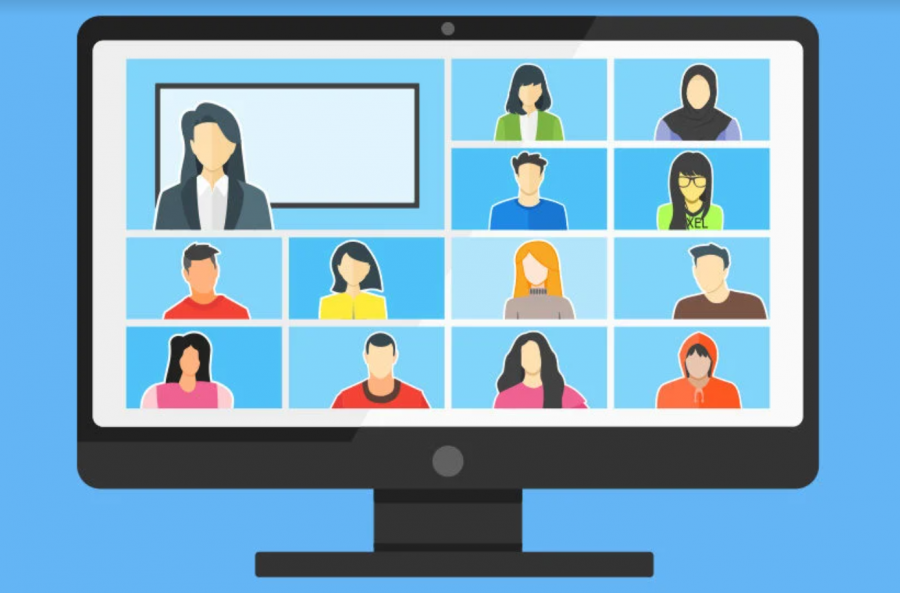Self Image in the Age of “Please Turn On Your Cameras”
December 14, 2020
Whether it’s wearing comfy clothes, being at home, or having the ability to occasionally text your friends without a teacher knowing, there are definitely some positives to participating in school over zoom. However so, there are still some downfalls. One being the fact that we have to stare at ourselves
all
day
long.
It raises the question, how has virtual learning impacted teens’ self-image?
In today’s world, social media is the biggest method of communication among teens, and filters and photo editing effects have become our norm. In this age, it’s considered “brave” to post an original, natural, unedited photo. I think we all have body image issues in some way. But now, we spend our days on Zoom meetings, completely unfiltered (except for maybe a virtual background). So in a way we are all now those “brave” social media influencer’s posts, but in the middle of our English classes. Go us!
I have found myself spending classes distractedly looking at my video, rather than at my teachers or classmates. I feel awful about having to stare at what I believe are my imperfections. We focus more on how we look: our camera angle, lighting, the way we are sitting up in our bed, and how much better other students look when they are taking notes. This phenomenon causes us to see our reflections in a different way, but how can we not compare ourselves to others? It’s like when you stare at yourself for so long, you start to look different (and by different, I mean worse). And there lies the problem. This only succeeds in increasing the negative thoughts going on in every teens’ head, just adding to the pileup of mental health struggles teens are carrying today. We have all traded in carrying our backpacks from class to class to now lugging around all of the stressors that have been thrown at us this past year. It’s important that we try not to continue to harp on our own videos, which, I’ll be honest, is difficult to do. But I’ve been trying to be better about it and actually look at the person in my class speaking. Even if I have to use the little minus sign and take the little box of myself off the computer screen completely.
In addition, with teens being forced inside with minimal social interaction and exercise, increased body image issues are very likely. Being on a Zoom call is like sitting in front of your mirror for hours at a time, while also talking with your peers, which does not sound ideal to me. Since this set up is so new for everyone, it is hard to know how much teens are really being affected by this, but I know from my own experience, that it’s probably not the best if I keep watching myself when other people are talking because whenever life gets back to normal and I have to speak with someone in person, I won’t know what to look at.
Something that has helped me is actually getting ready for school as if I was going out of the house. It is very easy to just throw on sweats when you’re not even leaving your room (which I do at least three days a week still, but real progress takes time). I try to get up a little earlier and take a shower and actually get dressed for once. While it is difficult to force myself to get out of bed, I always feel much more refreshed and ready for school on these days than the ones where I just roll out of bed and onto my first Zoom meeting, having to stare at the way my hair is poofed up as though I was still laying on my pillow.
While I understand that students are more engaged when everyone has their camera on, I think it is important that students on their own screens turn off the view from their camera so we don’t keep finding newer ways to have more emotional issues in the time of zoom classes. So, I now challenge you all to click that little minus sign as I have and focus on your classes instead of worrying about your appearance.

Andrew • Dec 15, 2020 at 11:14 AM
Wow, I never thought about how this affected me, but it totally does. Great article!